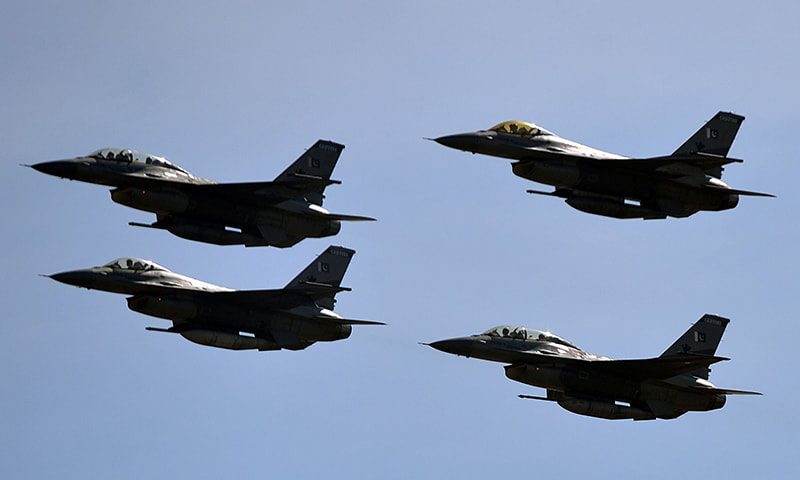
When nations go to war, the battlefield is not just physical—it’s deeply psychological. What we witnessed in May 2025 was not merely a military engagement but a textbook manifestation of unregulated national impulsivity, grandiosity, and psychological collapse—culminating in a swift and decisive response by the Pakistan Armed Forces, especially the Pakistan Air Force, that should be archived as a masterclass in strategic restraint and psychological warfare.

The Indian Manic Episode: Operation Sindoor and Symptoms of a Nation in Hypomania
The initiation of Operation Sindoor by the Indian Armed Forces bore all the hallmarks of a collective manic episode—a state clinically characterized by inflated self-esteem, decreased need for sleep, pressured speech, and reckless behavior with a high potential for painful consequences.
- Impulsivity: The speed with which the operation was launched, bypassing regional diplomatic protocols and international caution, reflected an alarming absence of forethought. Indian leadership exhibited a disinhibited urgency to ‘act’ rather than to think—a trait consistent with hypomanic compulsion.
- Grandiosity and Delusions of Omnipotence: India appeared to have overestimated not only its operational capacities but also underestimated Pakistan’s resolve and intelligence-gathering capabilities. Their media campaigns and public narrative promised swift victory, domination of airspace, and “complete control”—an exaggerated belief set disconnected from reality.
- Flight of Ideas and Poor Insight: Much like a manic patient jumping from thought to thought, India’s strategic posture lacked consistency. Mixed signals were broadcast: aggression, diplomacy, denial, and escalation—all within hours—showing a fragmented command cognition system.
Pakistan’s Strategic Silence: The Therapeutic Pause
In stark contrast, Pakistan responded not with emotional reactivity but with strategic patience. This phase, while misinterpreted by some as hesitation, was in fact a clinical assessment period—a therapeutic pause in which the enemy’s behavior was carefully analyzed.
- Psychological Containment: Just as a therapist calmly listens to a manic patient without matching their affective chaos, Pakistan held its ground, letting Indian aggression overextend and exhaust itself.
- Calculative Observation: Intelligence agencies, guided by clinical precision, mapped not only military movements but behavioral patterns, allowing for precise diagnosis of Indian intentions.
The Knockout: A Calibrated Psychotherapeutic Strike
When the response came, it was surgical—not just militarily but psychologically. Pakistan Air Force’s strike on critical Indian assets was not random aggression, but targeted behavioral intervention. In psychological terms, it was a reality check, akin to a confrontation technique used in cognitive-behavioral therapy.
- Timing: Like a well-timed interpretation in therapy, the punch landed when the patient was at peak distortion.
- Precision: The hit was clean, strategic, and humiliating—but not escalatory. It disrupted the manic cycle and grounded Indian forces into the depressive aftermath.
Also Read : Modi’s Escalation Syndrome: A Psychopolitical Analysis of India’s Recent Aggression Towards Pakista
The Crash: A Nation in Psychological Retardation
Following Pakistan’s precision strike, the Indian Armed Forces descended from manic confidence into collective depressive features—marked by:
- Psychomotor Retardation: Movement ceased. Troop momentum vanished. Air dominance claims dissipated.
- Low Self-esteem and Institutional Hopelessness: The sudden shift in tone from media and command echelons indicated internalized failure and helplessness.
- Defensive Withdrawal: Typical of depressive retreat, India moved from offense to denial and from assertion to justification. Strategic confidence had collapsed.
Pakistan Air Force: The Silent Psychotherapists
The role of Pakistan Air Force in this engagement deserves special mention. Far from indulging in a tit-for-tat escalation, PAF executed a clinical intervention. With nerves of steel and minds trained as much in psychology as in aeronautics, they functioned like seasoned therapists—reading the enemy’s psyche, identifying its disorder, and delivering the necessary behavioral correction with measured authority.
Their actions reaffirmed the principle that true power lies not in rage, but in regulation.
A Salute to Strategic Sanity
In just one week, India’s military posture traversed a full-blown bipolar arc—from manic militarism to depressive dysfunction. Pakistan’s Armed Forces, led by strategic thinkers and psychologically trained commanders, responded not with ego, but with intellect—not with noise, but with neurosurgical precision.
To the warriors in uniform who understood that the mind is the first battlefield, and who acted as both soldiers and psychologists—Pakistan salutes you.
Author Bio
Respected Prof. Dr. Muhammad Rizwan
Dr. Muhammad Rizwan is a Professor of Clinical Psychology at the National University of Medical Sciences and CEO of the School of Self-Education & Positive Personality Growth. A dedicated educator and psychology expert, he empowers individuals through personal development and skill-building. Known for his impactful workshops as a soft skills trainer, Dr. Rizwan inspires positive change in both academic and professional settings. Reach him at drcpsymuhammad.rizwan@gmail.com.







